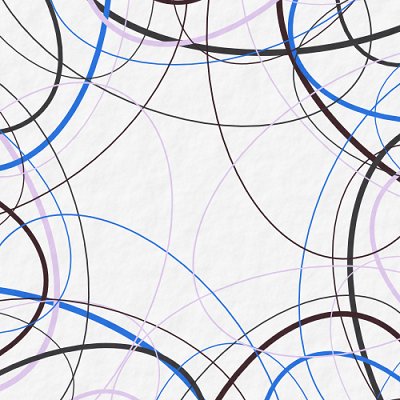結果
| 問題 | No.901 K-ary εxtrεεmε |
| コンテスト | |
| ユーザー |
 ferin ferin
|
| 提出日時 | 2019-10-05 13:13:33 |
| 言語 | C++14 (gcc 15.2.0 + boost 1.89.0) |
| 結果 |
AC
|
| 実行時間 | 421 ms / 3,000 ms |
| コード長 | 5,703 bytes |
| 記録 | |
| コンパイル時間 | 2,559 ms |
| コンパイル使用メモリ | 201,524 KB |
| 実行使用メモリ | 119,192 KB |
| 最終ジャッジ日時 | 2024-10-05 17:18:07 |
| 合計ジャッジ時間 | 12,806 ms |
|
ジャッジサーバーID (参考情報) |
judge1 / judge5 |
(要ログイン)
| ファイルパターン | 結果 |
|---|---|
| sample | AC * 1 |
| other | AC * 29 |
ソースコード
#include <bits/stdc++.h>
using namespace std;
using ll = long long;
// #define int ll
using PII = pair<ll, ll>;
#define FOR(i, a, n) for (ll i = (ll)a; i < (ll)n; ++i)
#define REP(i, n) FOR(i, 0, n)
#define ALL(x) x.begin(), x.end()
template<typename T> T &chmin(T &a, const T &b) { return a = min(a, b); }
template<typename T> T &chmax(T &a, const T &b) { return a = max(a, b); }
template<typename T> bool IN(T a, T b, T x) { return a<=x&&x<b; }
template<typename T> T ceil(T a, T b) { return a/b + !!(a%b); }
template<typename T> vector<T> make_v(size_t a) { return vector<T>(a); }
template<typename T,typename... Ts>
auto make_v(size_t a,Ts... ts) {
return vector<decltype(make_v<T>(ts...))>(a,make_v<T>(ts...));
}
template<typename T,typename V> typename enable_if<is_class<T>::value==0>::type
fill_v(T &t, const V &v) { t=v; }
template<typename T,typename V> typename enable_if<is_class<T>::value!=0>::type
fill_v(T &t, const V &v ) { for(auto &e:t) fill_v(e,v); }
template<class S,class T>
ostream &operator <<(ostream& out,const pair<S,T>& a){
out<<'('<<a.first<<','<<a.second<<')'; return out;
}
template<class T>
ostream &operator <<(ostream& out,const vector<T>& a){
out<<'['; for(T i: a) {out<<i<<',';} out<<']'; return out;
}
int dx[] = {0, 1, 0, -1}, dy[] = {1, 0, -1, 0}; // DRUL
const int INF = 1<<30;
const ll LLINF = 1LL<<60;
const ll MOD = 1000000007;
template <typename S>
class sparseTable {
public:
using T = typename S::T;
int n;
vector<int> log2;
vector<vector<T>> t;
sparseTable(int nn = 1e5) { init(nn); }
void init(int nn) {
n = nn;
log2.assign(n+1, 0);
for(int i=2; i<=n; ++i) log2[i] = log2[i >> 1] + 1;
t.assign(log2[n]+1, vector<T>(n));
}
void build(vector<T> v) {
for(int i=0; i<n; ++i) t[0][i] = v[i];
for(int j=1; j<=log2[n]; ++j) {
int w = 1LL<<(j-1);
for (int i = 0; i+(w<<1) <= n; ++i) {
t[j][i] = S::op(t[j-1][i], t[j-1][i+w]);
}
}
}
// [l, r]
T query(int l, int r) {
int j = log2[r - l];
return S::op(t[j][l], t[j][r-(1 << j)+1]);
}
};
struct minimum {
using T = PII;
static T op(const T& a, const T& b) { return min(a, b); }
};
class LCA {
private:
const int n = 0;
const int log2_n = 0;
vector<vector<int>> par;
vector<vector<int>> g;
vector<int> depth; // 頂点iの深さ
vector<int> vs; // 頂点を訪問順に並べたもの
vector<int> depth_seq; // depth_seq[i] = (頂点vs[i]の深さ)
vector<int> id; // 頂点が初めてvsに登場するインデックス
sparseTable<minimum> st;
void dfs(int v, int p, int d, int &k) {
id[v] = k; vs[k] = v; depth_seq[k++] = d; depth[v] = d;
for(auto to: g[v]) if(to != p) {
dfs(to, v, d+1, k);
vs[k] = v; depth_seq[k++] = d;
}
}
public:
LCA(int n_=1e5) : n(n_), g(n), depth(n), vs(2*n-1), depth_seq(2*n-1), id(n) {}
// u-vに辺を張る
void add_edge(int u, int v) {
g[u].push_back(v);
g[v].push_back(u);
}
// rootを根として初期化
void build(int root = 0) {
int k = 0;
dfs(root, -1, 0, k);
vector<PII> v(2*n-1);
REP(i, 2*n-1) v[i] = {depth_seq[i], i};
st.init(2*n-1);
st.build(v);
}
// uとvのlcaを返す O(1)
int get(int u, int v) {
if(id[u] > id[v]) swap(u, v);
return vs[st.query(id[u], id[v]).second];
}
};
struct auxiliaryTreeBasedLCA {
ll cur;
LCA lca;
vector<vector<ll>> g;
vector<ll> depth, fs, ls;
void dfs(ll v, ll p) {
fs[v] = cur++;
for(auto to: g[v]) {
if(to == p) continue;
depth[to] = depth[v] + 1;
dfs(to, v);
}
ls[v] = cur-1;
}
auxiliaryTreeBasedLCA() {}
auxiliaryTreeBasedLCA(ll n) : lca(n), g(n), depth(n), fs(n), ls(n) {}
void add_edge(ll a, ll b) {
lca.add_edge(a, b);
g[a].push_back(b);
g[b].push_back(a);
}
void build() {
dfs(0, -1);
lca.build();
}
// 頂点集合vから作成されるグラフの辺集合を返す
vector<PII> makeTree(vector<ll> v) {
sort(ALL(v), [&](ll a, ll b){ return fs[a] < fs[b]; });
const int k = v.size();
REP(i, k-1) v.push_back(lca.get(v[i], v[i+1]));
sort(ALL(v), [&](ll a, ll b){ return fs[a] < fs[b]; });
stack<ll> st;
vector<PII> edges;
int pre = -1;
REP(i, (ll)v.size()) {
if(pre == v[i]) continue;
while(st.size() && ls[st.top()] < fs[v[i]]) st.pop();
if(st.size()) edges.push_back({st.top(), v[i]});
st.push(v[i]);
pre = v[i];
}
return edges;
}
};
signed main(void)
{
cin.tie(0);
ios::sync_with_stdio(false);
ll n;
cin >> n;
vector<vector<PII>> g(n);
auxiliaryTreeBasedLCA tree(n);
REP(i, n-1) {
ll a, b, c;
cin >> a >> b >> c;
g[a].push_back({b, c});
g[b].push_back({a, c});
tree.add_edge(a, b);
}
tree.build();
vector<ll> dist(n);
function<void(ll,ll)> dfs = [&](ll v, ll p) {
for(auto to: g[v]) {
if(to.first == p) continue;
dist[to.first] = dist[v] + to.second;
dfs(to.first, v);
}
};
dfs(0, -1);
ll q;
cin >> q;
while(q--) {
ll k;
cin >> k;
vector<ll> v(k);
REP(i, k) cin >> v[i];
auto edges = tree.makeTree(v);
ll ret = 0;
for(auto e: edges) {
ret += dist[e.first] + dist[e.second] - 2*dist[tree.lca.get(e.first, e.second)];
}
cout << ret << endl;
}
return 0;
}
